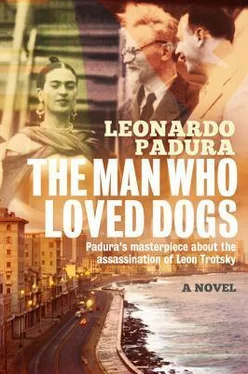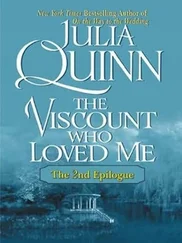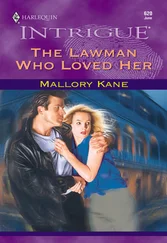Ramón recalled his wanderings through Utopia, as Eitingon called it. In the 1930s, when the repression and the scarcity were at their highest, a group of artists, mostly painters, had obtained the Leader’s permission to create an ideal commune in Sokol, and even received materials to make single-family houses with backyards and gardens. Many built izbas and Nordic cabins, but also, here and there, you could see a small Moorish palace or a house with a Mediterranean air. With full intent, they made sinuous streets with parks on the corners, on which they built beautiful pigeon houses in a variety of designs. The private areas and the communal ones were planted with a variety of trees not found anywhere else in the city, like rhododendrons, almond trees, and quince trees distributed in such a way that in autumn their leaves offered a spectacular chromatic show. From the rushed uniformity of the buildings built by Khrushchev where he had been confined, Ramón only needed to cross two streets to enter that singular space in Moscow, where the free will of its inhabitants had determined the kinds of houses in which they wanted to live and the trees they wished to plant. That part of Sokol was like a museum of the never-achieved socialist dream of beauty, a paradoxical individualized and human wart on the body designed in iron molds of the strict Soviet city planned by Stalin ever since he set out to “perform a cesarean section on old Moscow,” too chaotic and stately for his tastes as the Supreme Urbanist.
“Stalin ordered Golianovo built after the war. As always, he gave a deadline to finish the buildings, without it mattering too much how they turned out,” Eitingon said as he made space for his wife to place a casserole on the table with kholodets , pig’s-foot gelatin, for which she brought a bottle of mustard and a plate with rounds of strongly flavored wild radish as accompaniments. “But if the apartments are small and ugly, the fault, of course, is of imperialism, which is also responsible for Soviet shoes being so hard and for there being no deodorant and for the toothpaste irritating your gums.”
Luis smiled, denying something with his head, as he served himself the kholodets with the spicy radishes that Ramón detested.
“You’re such a funny man, Kotov. . Man, I remember when I met you in Barcelona. I was practically a boy and look, I’m already bald.”
Lionia looked quickly at the kitchen, to where his wife had returned, and warned in a low voice, making use of Catalan:
“It’s forbidden to mention Caridad.”
“Does Yenia understand Catalan?”
“No. But just in case. Don’t we have the most educated people in the world here?”
It was now Ramón who smiled.
“Stop fucking around and speak in Russian,” Galina demanded in Spanish. “Besides, Caridad is an ugly old woman full of wrinkles.”
“The devil doesn’t get wrinkly inside,” Eitingon said, and the rest agreed.
“I remember when Kotov talked to me about the Soviet Union,” Luis recalled, and took his wife’s hand. “I dreamed of this, and the day I arrived was one of the happiest in my life. I had arrived at the future.”
“And you got to the future. .,” Eitingon said through some pieces of lard in his mouth, and rinsed his mouth with a glass of vodka. “According to our leaders, this is the future. The West is the decadent past. And the most fucked-up thing is that it’s true. Capitalism already gave everything it could. But it’s also true that if the future is like Golianovo, people are going to prefer the decadence with deodorant and real cars for a long time. The world is at the bottom of a trap and the terrible thing is that we squandered the opportunity to save it. Do you know what the only solution is?”
“You’re joking that you have a solution!” Luis was surprised, and Eitingon smiled, satisfied.
“Close this shop and open another one, two streets down. But start the business without deceiving anyone, without fucking anyone over because he thinks differently from you, without looking for reasons to shut you up and without telling you that when they give it to you up the ass, it’s for your own good and for the good of humanity, and that you don’t even have the right to protest or say it hurts, because you shouldn’t give ammunition to the enemy and all of those justifications. Without blackmail. . The problem is that the ones who decide for us decided that a little bit of democracy was okay but not too much. . and in the end, they even forgot about the little bit we were due, and that whole thing that was so beautiful turned into a police station dedicated to protecting power.”
“So you’re no longer a Communist?” Luis asked, lowering his voice.
“They’re different things. I’m still a Communist, I will be until I die. The ones who became the masters of everything and prostituted it all, are they Communists? The ones who deceived me and deceived Ramón, were those Communists? Please, Luis. .”
Galina drank her vodka and spoke into the bottom of the glass.
“Was Trotsky a Communist? Khrushchev invited Natalia Sedova to visit Moscow. She refused, but the fact that they invited her shows something.”
“Khrushchev was always a clown,” Eitingon pronounced, and filled his glass.
Without making a comment, Ramón touched his hand where the half-moon scar showed. It was pathetic to him that his former boss was playing the victim. Eitingon, for his part, seemed upset. He picked a little bit from each plate, as if he were anxious, and at that moment Ramón remembered the lavish dinners, with delicate wines, that they allowed themselves in Paris, New York, and Mexico in their days as agents with expenses paid by the coffers of the Soviet state. How much of that money, he wondered, came from Spanish treasures?
“The country of the future. Stalin ordered the killing of millions of people,” Eitingon railed. “But what they ordered us to do was excessive. We should have left the old man to die of loneliness or to mess things up in his desperation, leaving only himself covered in shit. We saved him from oblivion and made him a martyr—”
“That’s enough,” Ramón cut him off, refusing to listen to that reasoning. “Do we have to talk about this?” And he dropped a stream of vodka into his orange juice.
“What else can we the shipwrecked talk about but the sea, Ramón Pavlovich? Let’s toast — to the shipwrecked of the world! To the bottom!” And he drank the vodka.
Following his cry, silence fell over the small room, but from the kitchen came Yevgenia Purizova’s voice announcing that the pelmenis were ready. Leonid, Luis, and Galina focused on finishing their appetizers, and did so meticulously, something that always frightened Ramón. Wiping his mouth with the back of his hand, Eitingon stood up, and while the visitors cleared the table of empty bottles and plates, the host placed another basket of black bread, the tray with pickled cabbage and lard, a plate with meats and boiled potatoes, oil, and vinegar, and finally handed out clean plates, from different sets. Yenia entered with a slightly dented casserole and placed it in the center of the table; Ramón found that the sight of the pelmenis brought back his appetite.
“The girls ate already. They’re watching television at a neighbor’s house. Serve yourselves as much as you like.”
She sprinkled the pelmenis with vinegar and Ramón tasted how Eitingon’s wife’s pelmenis , full of lamb meat, were much better than the ones Galina usually cooked.
“Lionia told me that your wife travels to Mexico every year,” Yenia commented, trying to sound casual in the middle of the din of silverware, the clinking of glasses, and the noise of chewing jaws.
Читать дальше











